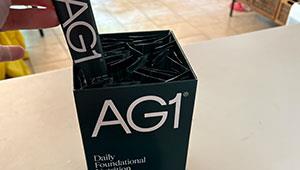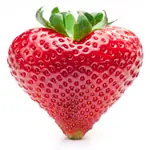Method:
Wash and clean all vegetables. Peal and cut off the tops and bottoms of the carrots, parsnips and turnips. Peal the garlic and onions. Cut all the vegetables into 3 or 4 pieces. Wash the chicken breasts.Fill a 12-quart, lidded cooking pot with 10 ? to 11 quarts of water. Add all the ingredients except the salt and pepper to the pot and bring to a boil. Lower the heat, cover and simmer about 3 hours. After about 2 hours, carefully remove the chicken breasts. Place the breasts on a large plate and remove and discard the skin and bones. Return the chicken back in the pot.
After 3 hours, turn off the burner and let the soup sit, covered for 2 to 3 hours. Add salt and pepper to taste, and refrigerate. The soup is best served the next day, so it has time to thicken and settle.
Nutritional Information: 2 cups (per serving), 129 calories, 1g fat, 20g carbs, 834mg sodium, 5g fiber, 11g protein.
More: Another Heart-Healthy Chicken Recipe
Health Benefits of Chicken Soup Ingredients
Parsnips: They're sweet, low in calories and loaded with fiber. They're also loaded with folate, which helps reduce the levels of homocysteine, an amino acid that, at high levels, can lead to artery damage. Parsnips are also a good source of vitamin C (which boosts the immune system), vitamin E and potassium.
Italian parsley: Loaded with vitamin K, as well as an excellent source of vitamins A (for eye health) and vitamin C. Parsley also contains the phytochemical myristicin, which studies have shown to inhibit tumor formation, particularly in the lungs. And it is a top source of the antioxidant flavonoid apigenin, which is said to protect the prostate.
Carrots: Packed with the antioxidant beta carotene, which may reduce the risk of heart disease and cancer and promote better vision.
Dill: Has calcium, iron and anti-bacterial properties. Dill also contains monoterpenes, which, according to the Journal of Nutrition, are said to have anti-tumor properties.
Celery: Although 95 percent water, celery is a good source of fiber and supplies modest amounts of antioxidants, vitamins and minerals. Celery contains the phytonutrient quercetin, which promotes prostate and brain health.
Garlic: Garlic is an excellent source of manganese, a very good source of vitamins B6 and C and a good source of selenium. It is also said to have strong anti-cancer properties. The compound that produces much of the disease-fighting activity of garlic is allicin.
Onion: Onions contain more quercetin than any other common fruit or vegetable. This potent antioxidant has been linked to a reduction in the risk of heart disease, Alzheimer's and a variety of cancers (such as prostate and lung cancer). Onions also contain phytochemicals, which are known for their anti-cancer and anti-microbial properties. Onions, like leeks, also contain inulin.
Turnip. A root vegetable that has calcium, iron, fiber and is high in vitamin C.
Leeks. They're a good source of manganese, a trace mineral that plays an important role in the formation and maintenance of bone and connective tissue. Also, like onions, leeks contain the prebiotic fiber inulin, which can selectively improve the proportion of good bacteria in the colon that help to create a physical barrier to infection and have been linked to improved absorption of important minerals such as calcium and magnesium. Leeks also have the flavonoid kaempferol, which helps fight degenerative diseases such as cancer, diabetes, cardiovascular diseases and cataracts.
Broccoli: One of the healthiest vegetables on the planet. High intakes of broccoli and other cruciferous vegetables are linked to a lower risk of lung, prostate and colorectal cancer. Broccoli is also high in potassium, vitamin A, vitamin K and folic acid, all of which are vital to heart health.
More: Heart Health and Nutrition
 Eat right and perform better. Find a nutrition plan for you.
Eat right and perform better. Find a nutrition plan for you.
- 2
- of
- 2








Discuss This Article